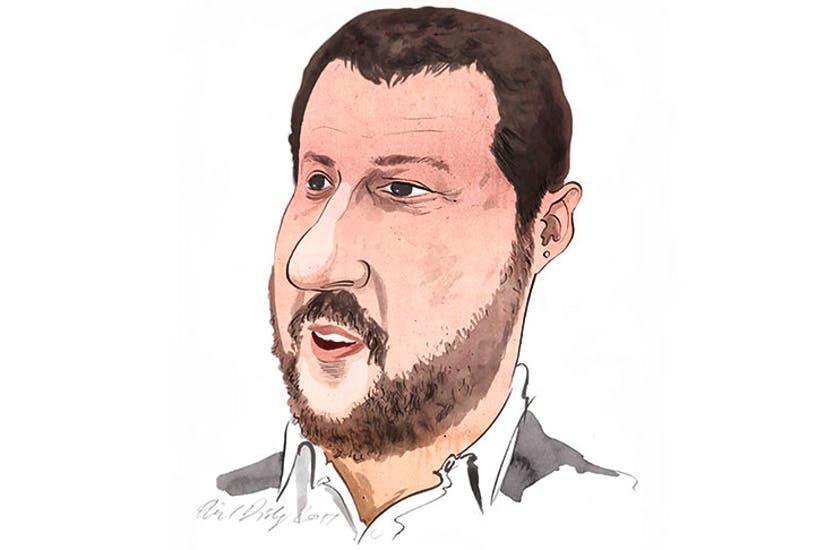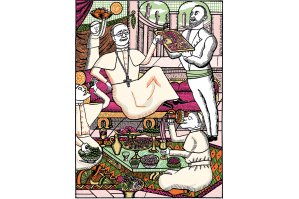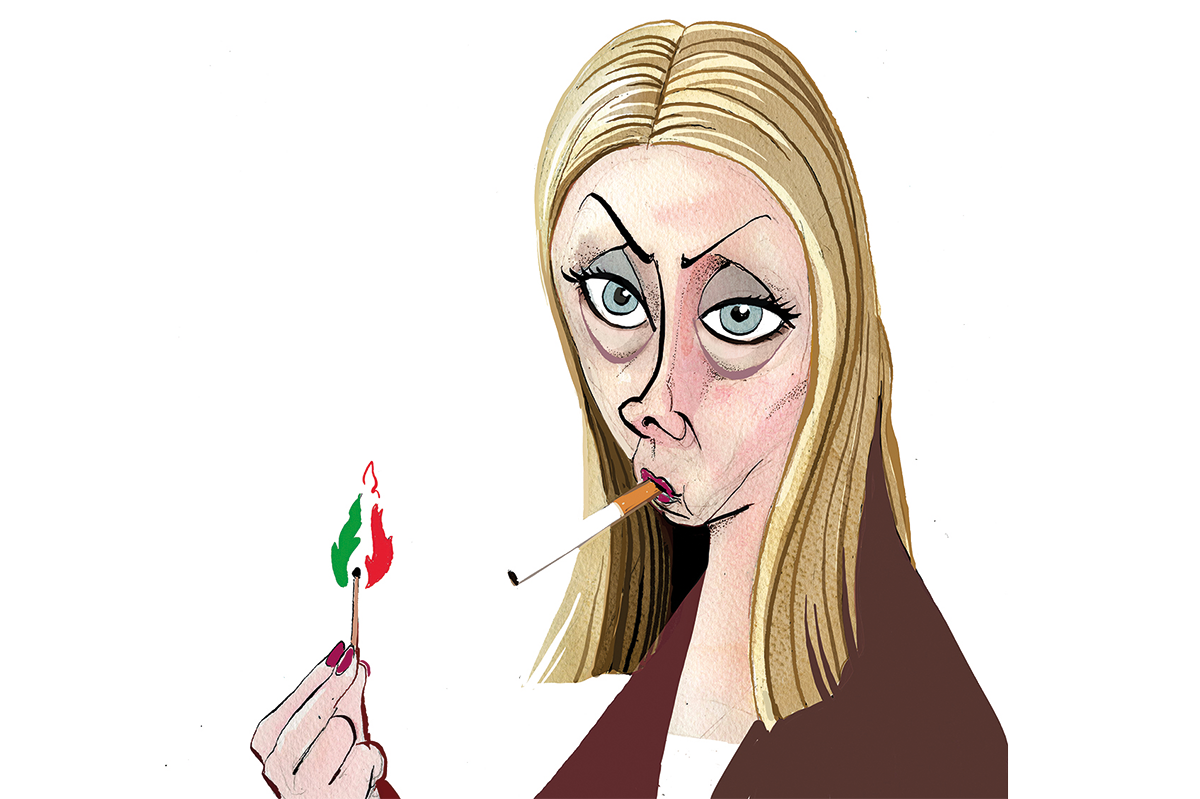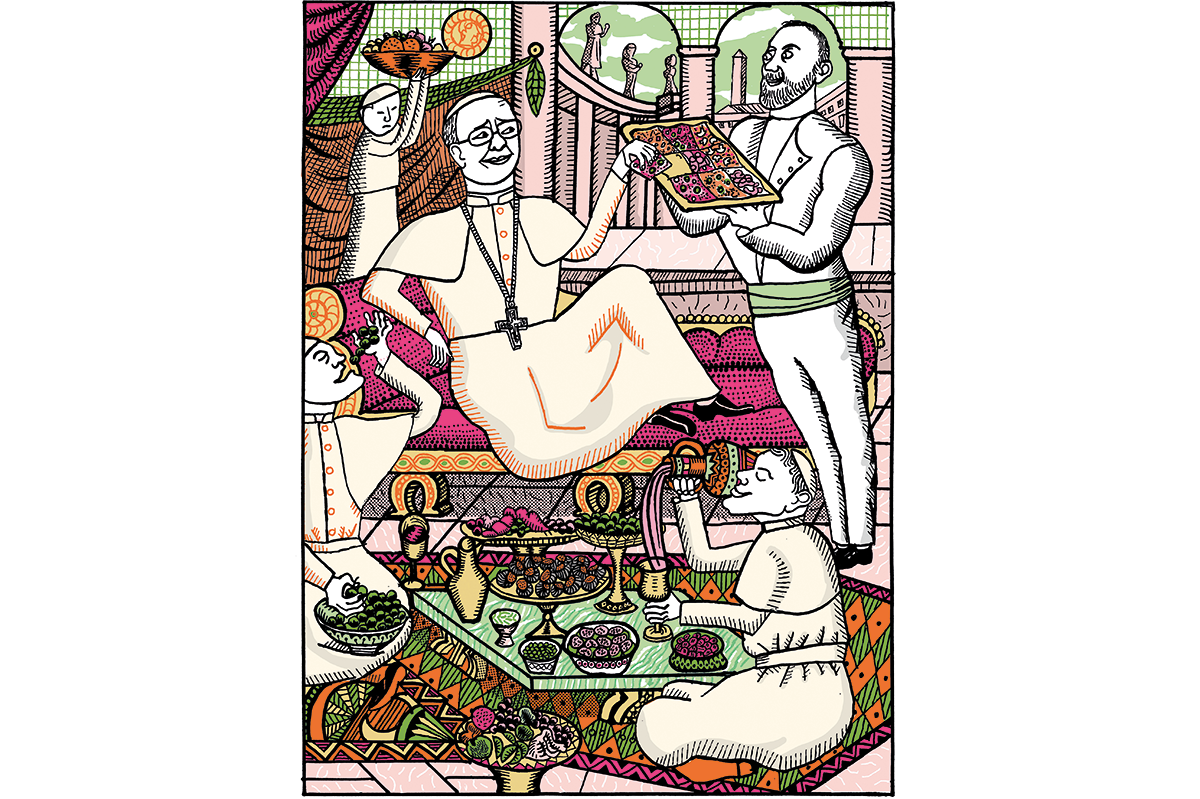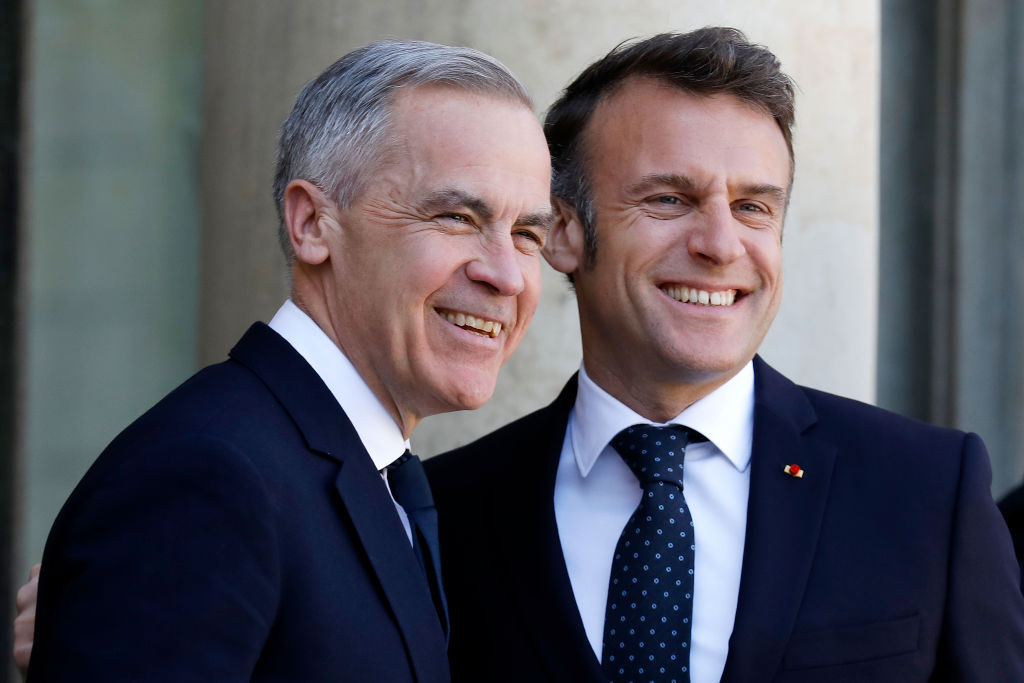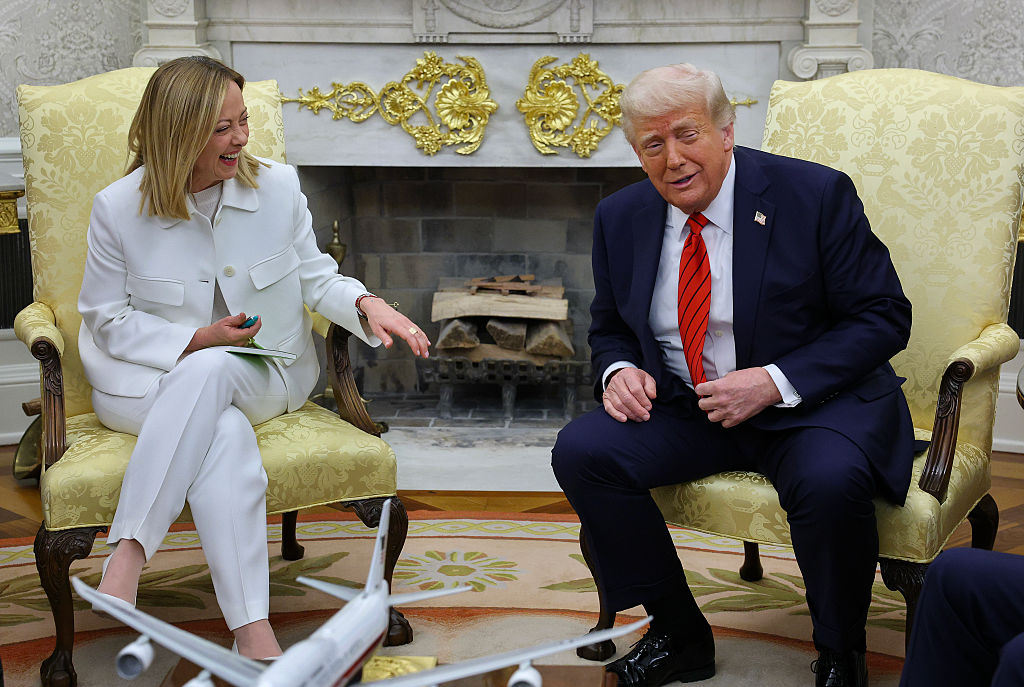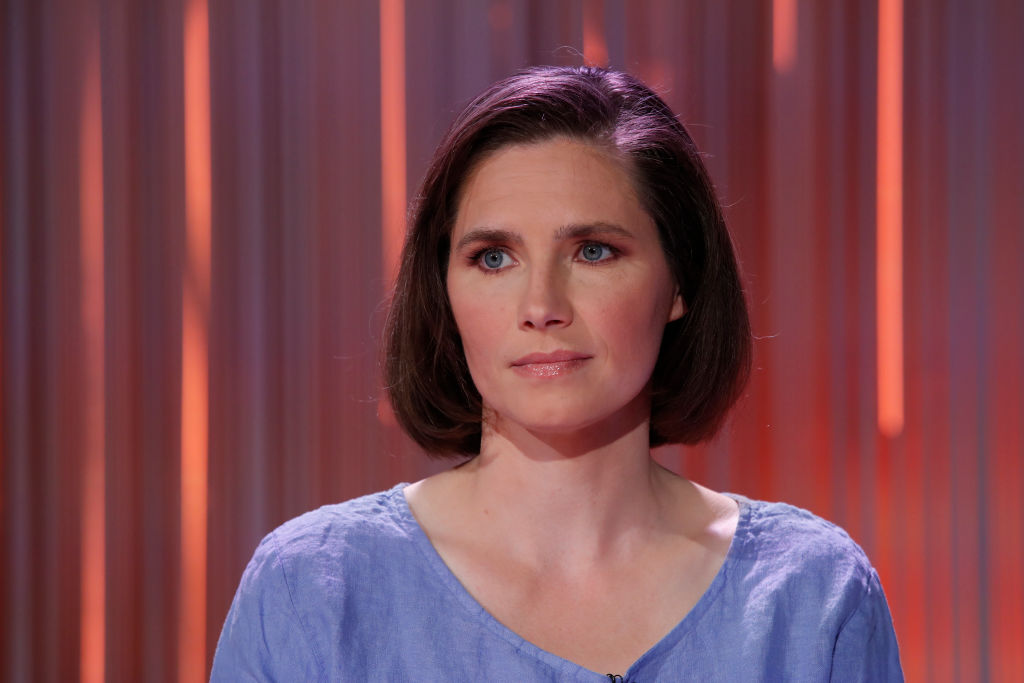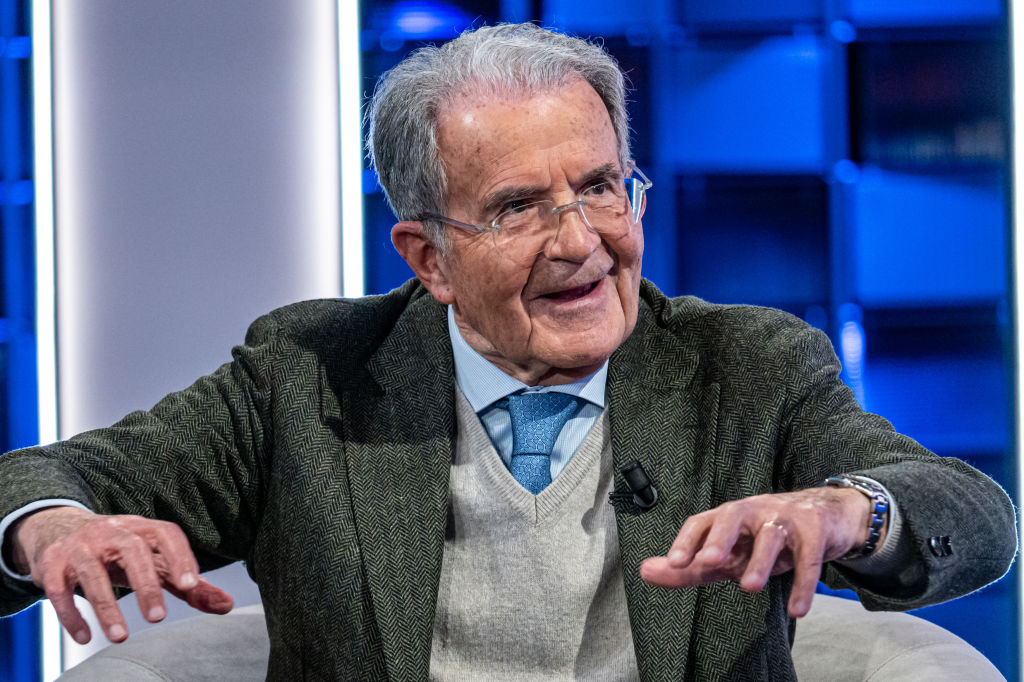The man who could become Italy’s next prime minister is sat just opposite the entrance to the huge US and Nato airbase near Catania in Sicily at a hotel confiscated from the Mafia. It’s not Silvio Berlusconi, no matter how much the British press tells us that ‘Berlusconi is Back!’ Silvio Il Magnifico (as I call him) cannot be prime minister because he is banned from public office after his four-year jail sentence for tax fraud in 2012 (commuted to a year’s community service in an old people’s home).
No, the man I’m talking to is Matteo Salvini, leader of Lega, who now stands poised to become Italy’s Prime Minister, assuming he can cobble together a coalition. Together with the post-fascist Fratelli d’Italia (5 per cent), they have enough support to win a working majority at the election, when Italians will attempt to empower their first elected prime minister since Berlusconi was forced to resign in 2011.
Comic demagogue Beppe Grillo’s Five Star Movement tops the polls on 27 per cent. But it cannot win because it refuses to join coalitions. Ex-prime minister Matteo Renzi’s post-communist Partito Democratico is second on 25 per cent, but is dogmeat after five years of failure and three unelected premiers (including him).
We had gone outside to smoke at my suggestion (Salvini instantly agreed) and we got on like a house on fire, as smokers invariably do these days. Salvini, 44, is a big smoker and has a fairly big beard, too. I’d spent a week following him around Sicily before last month’s regional elections in what was a dress rehearsal for the national campaign. Who wins Sicily, wins Italy. The coalition of the right won hands-down.
Lega was founded in 1989 to detach northern Italy (La Padania) from everything south of ‘Roma Ladra’ (thieving Rome). Southern Italians, it preached, were parasites and thieves and / or mafiosi. Yet here is its leader in Sicily, where trees are few but the state employs more forestry police (24,000) than Canada, courting Sicilian votes. On the eve of his visit, Salvini even changed the name of his party from Lega Nord to just plain Lega.
So we lit up and I asked him what he would do about the migrant crisis. Since 2013, half a million migrants, mainly sub-Saharan African men, have arrived in Italy by sea from Libya. According to the UN, only 30 per cent are refugees. Most were picked up just off the Libyan coast near Tripoli by EU and NGO vessels and ferried to Sicily 300 miles away. Several NGOs are under criminal investigation in Italy for alleged collusion with the people-smugglers.
There are 180,000 migrants in welfare centres and, Salvini assured me, ‘another 300,000’ at large. His solution? ‘I’ll send the navy to blockade Libya to stop them, and deport those who are not genuine refugees (that’s nearly all) within a year of coming to power,’ he said.
‘Come off it, you don’t even know their names, let alone where they’re from.’
‘We do know,’ he said. ‘And we’ll do the necessary deals with their governments to send them back. Out, tutti!’
The previous day he had been to a luxury hotel near Agrigento, now a migrant welfare centre whose owners get the standard €35 a day for each of their 200 migrants (all men, bar two) from the government.
‘I welcome women and children who’ve escaped from the bombs of Syria as sisters and brothers, but we can’t take in all the disaddattati (misfits) of the world,’ he says. ‘All I see is loads of fit-as-a-fiddle young men who look like they’ve just come from the gym or from under the sun lamp. I tell the truth and they call me a fascist, a racist, an ugly, dirty, nasty, xenophobic populist. But my success reflects the reality that Italians are at the end of their tethers.’
Is he a fascist? ‘No. I’m a federalist. Look, the so-called “far right” defends the working class far more than the left does.’
From what? ‘Cheap Tunisian olives and Moroccan tomatoes produced with chemicals banned in the EU and clandestini (illegal immigrants) in Italy who work for peanuts.’
Salvini, who abandoned a history degree at 20 to be a politician, is trying to transform Lega from a regional-federalist party into a national-federalist one and attract enough votes nationally (while keeping its support in the north) for it to become the top party of the right and so provide the premier. He became party leader in 2013 when its support had collapsed to 3 per cent. It is now at an all-time high. Since 2004, he has been a Euro MP on and off, and Lega is in the same bloc in the Euro Parliament as Marine Le Pen’s Front National and Geert Wilders’s Freedom Party.
Until Le Pen’s defeat in France’s presidential vote last spring, Salvini had promised to take Italy out of the euro and even the EU unless there were drastic reforms. But when Le Pen’s euro-hostility was seen as a vote-loser, he changed his tune. So will he or won’t he take Italy out of the euro?
‘No need. It will collapse when the Germans refuse to fork out any more for the Mediterranean countries, which of course they will.’ The EU? ‘It can’t survive in its present form. It must give back power to the people, which means to national governments.’
Whatever you make of his politics, Salvini, a fanatical supporter of the soccer team AC Milan, is molto simpatico. Everything he says drives the liberal left wild with anger, but he does not rant and rave like Mussolini or Beppe Grillo and he tells lots of jokes. You just could not make it up. Divorced with a son, 14, and daughter, four, by different women, he lives with Elisa Isoardi, a TV presenter and former Miss Italia contestant.
Does he believe in God? ‘Yes, but I’m not very good at confessing my sins and going to Mass.’ Salvini as premier? A dead certainty? No way. A distinct possibility? Definitely.



